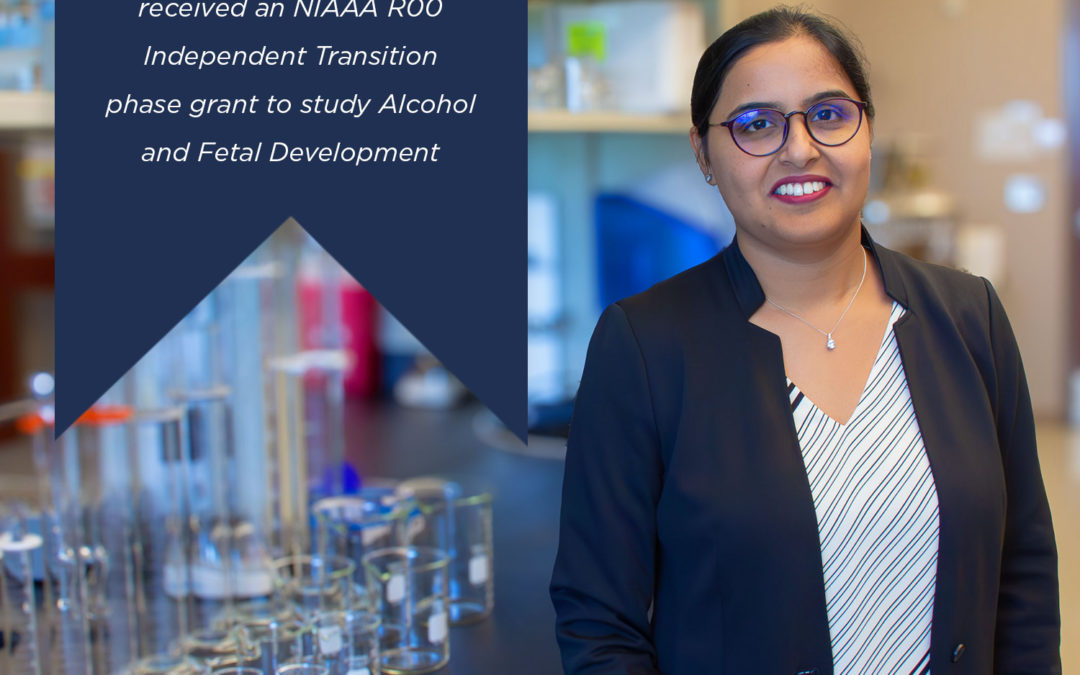Nipun Saini, PhD, assistant professor of Nutrition at the UNC Nutrition Research Institute (NRI), has been awarded the highly competitive R00 award from the National Institutes of Health (NIH). This Transition to Independence award, affectionately known as the “kangaroo” grant, helps postdoctoral fellows leap into independent faculty positions, providing both mentored research time (K99 phase) and support for newly independent research (R00 phase).
Saini’s research focuses on understanding the effects of maternal nutrition, particularly during pregnancy, on fetal development. Specifically, she is investigating how alcohol consumption during pregnancy—a well-known teratogen—impacts fetal growth and metabolism. Her work aims to understand how alcohol disrupts maternal metabolism and contributes to impaired fetal growth and neurodevelopment. By focusing on the mother’s metabolism, Saini hopes to uncover new ways to mitigate the harmful effects of alcohol exposure on fetal development.
What is a Teratogen?
A teratogen is any substance or factor that can cause harm to a developing fetus, leading to birth defects or other developmental problems. Common examples include alcohol, certain medications, and infections.
Reflecting on the significance of the award, Saini shared insights into how it will impact her research in the coming years:
“For years, research has focused on addressing the effects of alcohol after birth, but I want to intervene earlier,” she explained. “I’m investigating how maternal metabolism during pregnancy can drive impaired fetal growth and neurodevelopment, especially in cases of alcohol exposure.”
The journey to securing this prestigious award wasn’t achieved alone. Saini credits her mentors, Susan Smith, PhD, and Sandra Mooney, PhD, for providing her with invaluable support. “Their words of wisdom and encouragement pushed me to refine my ideas and gave me confidence to run my own lab,” she said.
Saini also acknowledges how personal experiences have shaped her research. “I started researching pregnancy metabolism while I was expecting my first child, so I’ve felt the weight of this work on a personal level from the start,” she shared. “The more I learn about the complexities of pregnancy and how nutrition affects the mother-child dyad, the more driven I become. Every day, I go to work hoping to find something that will help mothers and their babies thrive, especially in complicated pregnancies. This R00 grant is just the beginning of that journey, but it’s a significant step forward.”
With this significant grant, Saini’s groundbreaking research into maternal-fetal health is poised to make a profound impact in the field of nutrition science, continuing the NRI’s mission to improve lives through nutrition research.

